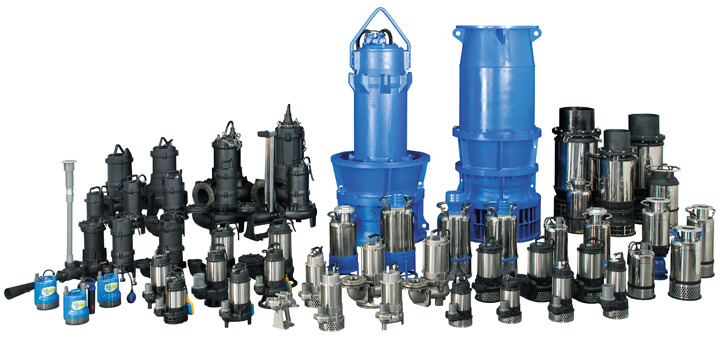Earth’s indispensable water resources are only sustainably utilized and distributed when we, as responsible citizens, prioritize water management. In the process of management, pumps are important mediums to ensure proper movement, control, and distribution of water.
This article is a profound attempt to unravel the importance of pumps and the various types of pumps that help make water management a streamlined process.
How Do Pumps Help With Water Management?
To realize the role of pumps in water management, you need to know their roles. From taking care of drainage issues to supplying water and bettering wastewater, pumps are the only sensible way to take care of water resources.
Pumps can help control water levels in reservoirs, prevent floods, and improve the irrigation of agricultural fields. Since a good pump can have such an important impact, it is imperative to buy one from high quality pump brands like Hydromatic.
Various Pump Types That Help With Water Management
Now that you are familiar with the role of pumps in the world of waste management, you can move towards understanding the various types of pumps you can go for:
Chemical Metering Pump
The chemical metering pump is a precise instrument in water treatment processes across the world. Specifically curated for the controlled injection of chemicals into water systems, these pumps ensure the right dosing required to sustain the water quality gets to the resources in due time.
Chemical metering pumps are especially suited to processes such as disinfection, pH regulation, chemical coagulation, etc., that require accuracy at all times, without fail.
Chemical metering pumps make use of modern mechanisms to prevent overdosing or lacking in injections at any given time. This accuracy is primal for applications that demand precision since even slight variations in chemical concentration can impact water quality greatly.
Dewatering Pump
In areas like waterlogged construction sites, mines, or flooded areas, dewatering pumps offer a big help with the potential challenges of clogging. These can handle large volumes of water efficiently due to their engineering designs and also play a pivotal role in preventing flooding.
The areas where excess water poses a constant threat benefit from this pump’s ability to get rid of water where not required.
Dewatering pumps have several types, like the submersible and centrifugal pumps, each of which is for specific applications. Submersible dewatering pumps, for example, are made to be put into the water. They are additionally ideal for removing water from closed spaces like basements.
Centrifugal dewatering pumps are more suited for large-scale or commercial applications by providing high flow rates for rapid water removal.
Sump And Sewage Pump
When it comes to wastewater management, sump and sewage pumps are saviors from hazards. Sump pumps are functional for getting rid of water from basements, crawl spaces, and low-lying areas so the whole structure does not succumb to water damage in the long run.
Sewage pumps also transport raw sewage from residential and industrial areas to treatment facilities so the wastewater does not go anywhere else.
Sump pumps work by collecting water in a basin and then transporting it before it can cause flooding hazards.
These pumps are important for regions that experience heavy rainfall or where water table levels are usually high. Sewage pumps are responsible for handling and moving wastewater containing solids and organic matter.
Trash Pump
If any given water resource is full of debris, solids, and impurities, trash pumps prove the most helpful. These are quite common in construction sites or areas prone to flooding. They are also designed to handle water laden with large waste particles.
Pumps remove the risk of clogs and hazards on the way toward water management systems by removing any debris as they come on time.
Trash pumps have impellers that are apt at handling solid materials. These can pass larger particles to prevent blockages and ensure continuous operation. Trash pumps are found in flood-prone areas, construction sites, or industrial settings dealing with harsh materials.
Well Pump
Well pumps are a reliable water supply source, straight from the underground sources. They can efficiently draw water from wells and boreholes to ensure a consistent supply for agricultural, residential, and industrial requirements.
They have types, such as submersible or jet pumps, to cater to diverse well configurations that can serve regions commonly dependent on groundwater.
Well, pumps are effective for harnessing and accessing groundwater, which is a precious resource in areas where surface water does not suffice human needs. Submersible well pumps are put in the well and send water to the surface.
Jet pumps use suction to draw water straight to the surface. These pumps are so very important for continuing through a sustainable and reliable water supply, especially in rural, remote, and disaster-stricken areas.
Water resources are nothing without effective water management, which is made functional with the help of pumps that apply to several areas. The above-mentioned types of pumps have applications in commercial, rural, remote, household, and other realms.

